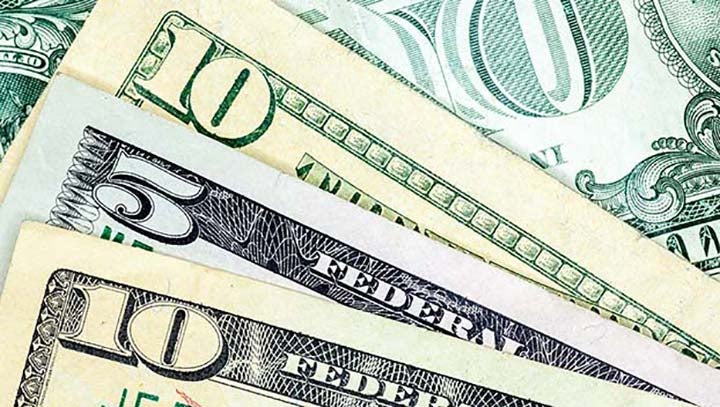Nation’s ‘most disadvantaged areas’ receive USDA funding
Published 4:00 pm Sunday, November 28, 2021

- Metro
On Nov. 18, U.S. Department of Agriculture Secretary Tom Vilsack announced six Mississippi grants were included as the department’s recipients of the USDA Rural Development Awards.
In Mississippi:
• South Central Community Action Agency of Brookhaven received $187,000. This agency provides qualified low-income families with access to several different assistance programs, both short and long term, in Copiah, Hinds, Lincoln, Madison, Pike, Rankin, Simpson and Walthall counties. It offers case management, support in obtaining and paying rent on adequate housing, information on affordable health care services and nutrition, and assistance to receive adequate education or employment.
• Home Again, Inc, a nonprofit subsidiary of Hope Enterprise Corporation in Jackson, received $99,370.
• WWISCAA, Inc., of Greenville, received $100,000. The organization provides comprehensive human service programs – mainly anti-poverty programs – in Warren, Washington, Issaquena, Sharkey and Yazoo counties, as well as limited services to Humphreys, Desoto, Tate, Tallahatchie, Panola and Quitman.
• Gateway Community Development Corporation of Yazoo City received $50,000.
• Mississippi Association of Cooperatives of Jackson, a nonprofit that serves farmers, their families and communities in increasing their livelihood, security and improving quality of life, received $175,000.
• Tri-County Agricultural Cooperative, a project in Batesville that supports approximately 45 socially disadvantaged farmers and ranchers primarily located in Mississippi Delta counties of Panola, Tallahatchie and Yalobusha, received $175,000.
The investments are part of the Biden administration’s attempt to “ensure that people living in rural communities have equitable access to the infrastructure and opportunities often taken for granted by people living in urban and suburban areas.”
“Regardless of where they live, their race, ethnicity or gender, or the size of the town in which they live, all people must have access to decent housing, clean water and good job opportunities,” Vilsack said. “This is foundational to a healthy society and stable communities. [The] announcement build[s] on the historic investments made possible by the American Rescue Plan Act signed into law by President Biden to ensure equity during a time when people living in underserved places are suffering the most. These investments will go a long way toward helping America ‘Build Back Better’ toward a just and more equitable society.”
Vilsack highlighted 218 investments that the USDA is making in six programs specifically designed to help people and businesses in rural areas. These programs include
The funding will help more than 425,000 people in 46 states, Puerto Rico and the Western Pacific, claims the USDA. The organization said the funding “reflects the many ways USDA Rural Development helps rural residents, businesses and communities address economic development, infrastructure and social service needs.”
The department named the following as ways the money can help:
• Help low-income people make health and safety repairs to their homes
• Help build and improve water and wastewater infrastructure for people living in U.S. communities along the Mexico border
• Help rural business owners in the Mississippi Delta get access to capital and business development assistance
• Help colleges that serve tribal populations upgrade campus buildings and services
As examples of specific programs that will be funded, the department listed the following:
• The Keystone Development Corp. in Lancaster, Pa., is receiving a $173,288 Socially Disadvantaged Groups Grant to provide business development technical assistance. It will support women who own agricultural cooperatives that grow flowers and various types of fibers. The project is expected to help 25 women farmers in three counties in Pennsylvania and five counties in New Jersey.
• Central Florida’s Habitat for Humanity/Lake-Sumter is receiving a $351,135 Housing Preservation Grant to help 42 low- and very-low income people make health and safety repairs to their homes. These investments will support healthier and happier lives for all 42 homeowners.
• The Skagway Development Corp. in Alaska is receiving a $121,825 Rural Community Development Initiative grant to help small businesses develop five-year growth and operating plans. It will provide the services to businesses with 50 or fewer employees and less than $1 million in gross revenues to help new entrepreneurs and small business owners succeed and create jobs in their communities.
• Minnesota’s Red Lake Nation College is receiving a $175,448 Tribal College Initiative Grant to purchase computers, a 15-passenger van and lawn maintenance equipment. The college will replace the 30 computers in the learning center and computer lab, and 32 assigned to faculty and staff.
The 218 awards are being made in Alaska, Alabama, Arkansas, Arizona, California, Colorado, Connecticut, Florida, Georgia, Hawaii, Illinois, Indiana, Iowa, Kansas, Kentucky, Louisiana, Maryland, Massachusetts, Maine, Michigan, Minnesota, Mississippi, Missouri, Montana, Nebraska, Nevada, New Hampshire, New Jersey, New Mexico, New York, North Carolina, North Dakota, Ohio, Oklahoma, Oregon, Pennsylvania, South Carolina, South Dakota, Tennessee, Texas, Utah, Virginia, Vermont, Washington, West Virginia, Wisconsin, Washington, D.C., Puerto Rico and the Western Pacific.
Under the Biden administration, Rural Development provides loans and grants to help expand economic opportunities, create jobs and improve the quality of life for millions of Americans in rural areas.
All the grants were presented by representatives Bennie G. Thompson or Michael Guest.





